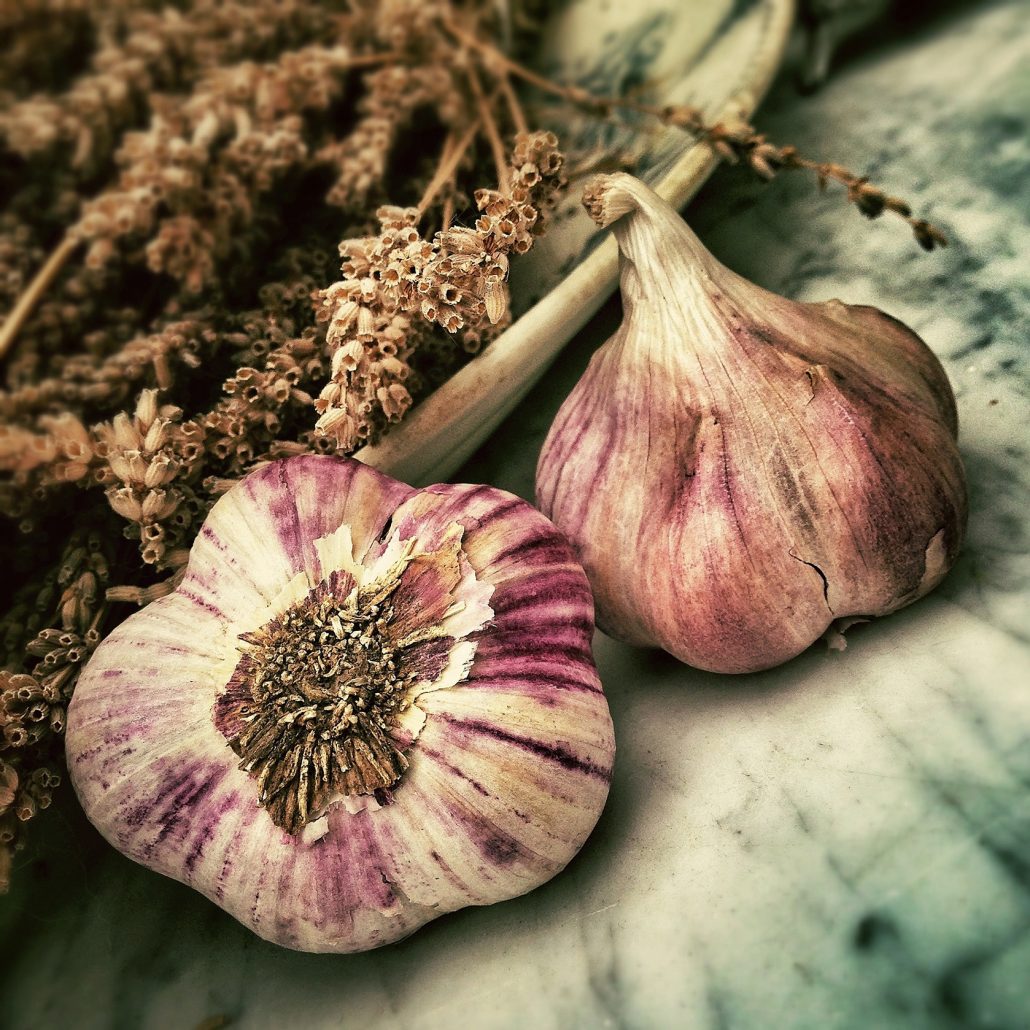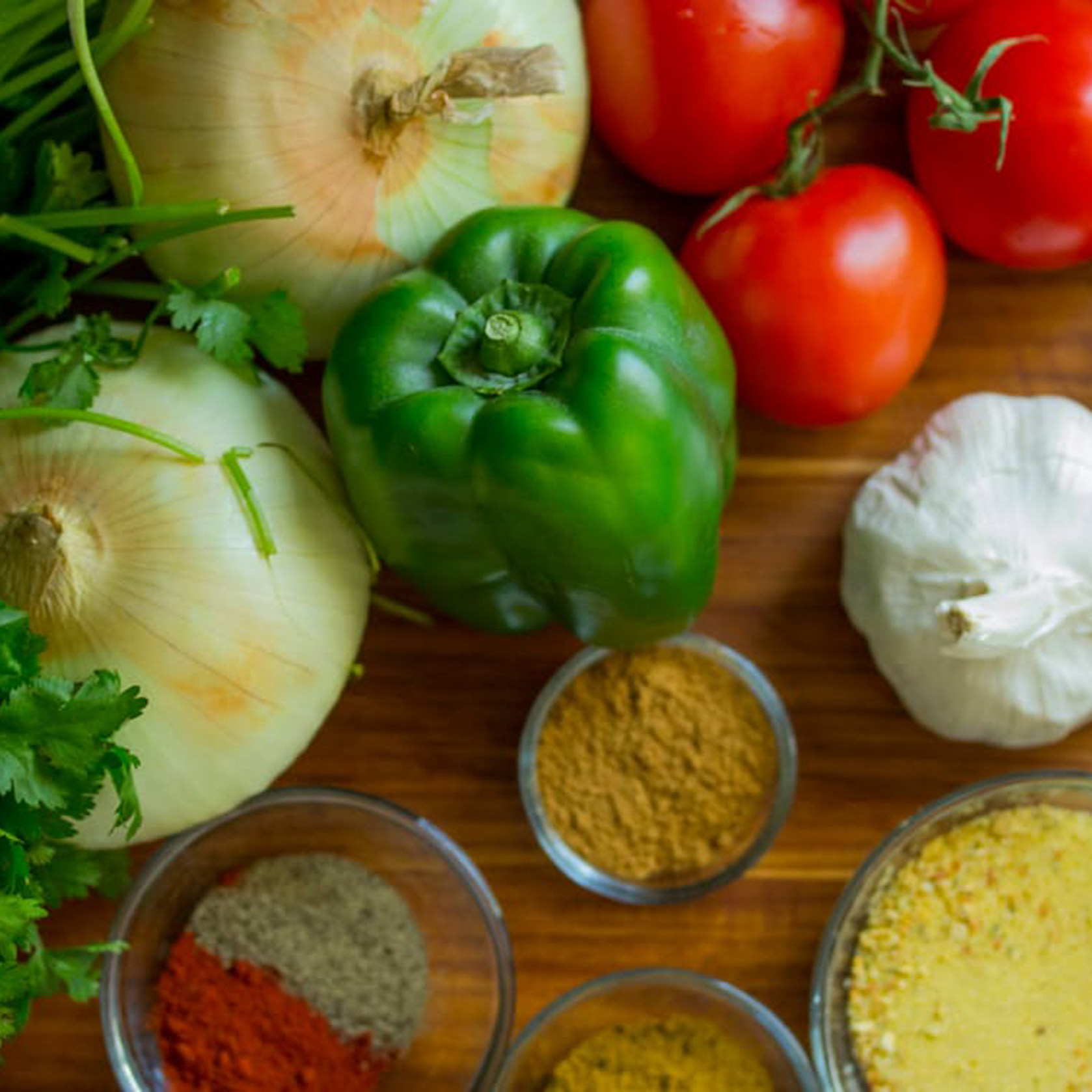If there’s anything I learned from my own health experience last year, it’s to trust my gut. I’m not talking intuition here—I’m focusing on my eating habits and how I’m affected by what I consume. I waited six months after my first digestive symptoms before taking action. Delaying my road to recovery made it a long, hard, bumpy ride (with painful B12 shots to boot).

To maintain my regimen in the new year, I’ve made the following resolutions:
1. To take more a measured approach to my own health and well-being.
I recognize that each and everyone of us has a unique microbiome—what works for one, may not work for all. I pay attention to the foods I eat as well as my body’s response to those foods, so I have a better understanding of what works best for me.
2. Eliminate the word “diet” from my vocabulary.
This not only plays into the fact we all have a unique microbiome, but also the connotations we’ve attached to the word diet. In our modern society, “diet” means to lose weight. I’m more focused about raising people up, encouraging them to get healthy, than joining the media-fueled perception of the perfect weight. The “D-word” has to go.
3. Start the conversation about gut health.
According to recent research, 72% of women suffer from digestive issues and 64% of those women are not willing to talk about digestive issues with their friends.* Women dive into the most personal details of their lives, and openly discuss their menstrual cycles, menopause, and men. Why aren’t we talking about our gut health? I highly encourage you to join me on a healthier, happier, more delicious new year. And it starts with admitting there’s a problem.
My Gut Health Guru
For me, popping a daily Gas-X or Tums is not an option. I took a much more holistic approach, looking to heal myself with food, and consulted Jennifer Clemente, MS, CNS. Jennifer is a clinical nutritionist with a functional approach—meaning she focuses on the root of the problem and avoids covering up symptoms—at the Kellman Center in New York City.
Jennifer was the first person I confessed my problems to, but only after I heard someone chatting with her about their symptoms. She immediately made me feel comfortable, and explained systems and approaches in a way I could understand. And while she made me feel less guilty about waiting so long, she also revealed it is common.
“Women are so programmed to push through, move forward, work hard,” she says. “We take care of everybody else that we just put our own stuff on the back burner, especially if we can still function. It’s only when people start spiraling out of control and they just can’t function anymore, that’s when they tend to drag themselves in and say, okay now I’m ready to see what’s going. It would be great if we all came in and started fixing things at the beginning because it’s a lot easier to fix.”
#truestory

Where to Start
If you are suffering from digestive or overall health issues, Jennifer recommends taking note of your symptoms. Be on the lookout for irregular bowel movements, bloating, gas, abdominal pain, and heartburn. But there are also symptoms driven by intestinal imbalances you may not realize can be related. “Intestinal problems are really at the heart of most conditions because the intestine is so full of the immune system and the gut bacteria live there,” Jennifer says. You may also experience things like joint paint, symptoms from a thyroid problem, headaches, skin conditions, brain fog, and trouble concentrating.
While it’s always good to consult a nutritionist or medical professional once you’ve identified your issues, Jennifer recommends a few simple changes you can make to promote gut health in the new year:
• The microbiome and gut bacteria really thrive on plant food. Indulge in more high fiber foods and pre-biotics—foods that don’t break down easily in your intestine and ferment, feeding good bacteria—include onion, garlic, radishes, asparagus, and jicama.
• Take out the junk—packaged foods, fast foods, and sugar. These all promote the unhealthy bacteria takeover.
![]()
For more information and tips from Jennifer, check out my interview with her on Fork This with IntoxiKate.
Please note: I do not have a medical background. The information here is based on personal experience, research, and interviews with experts in the medical field. Please consult a nutritionist and/or medical professional before making changes to your lifestyle.
*Statistics and information provided by Renew Life Ultimate Flora Probiotics.
